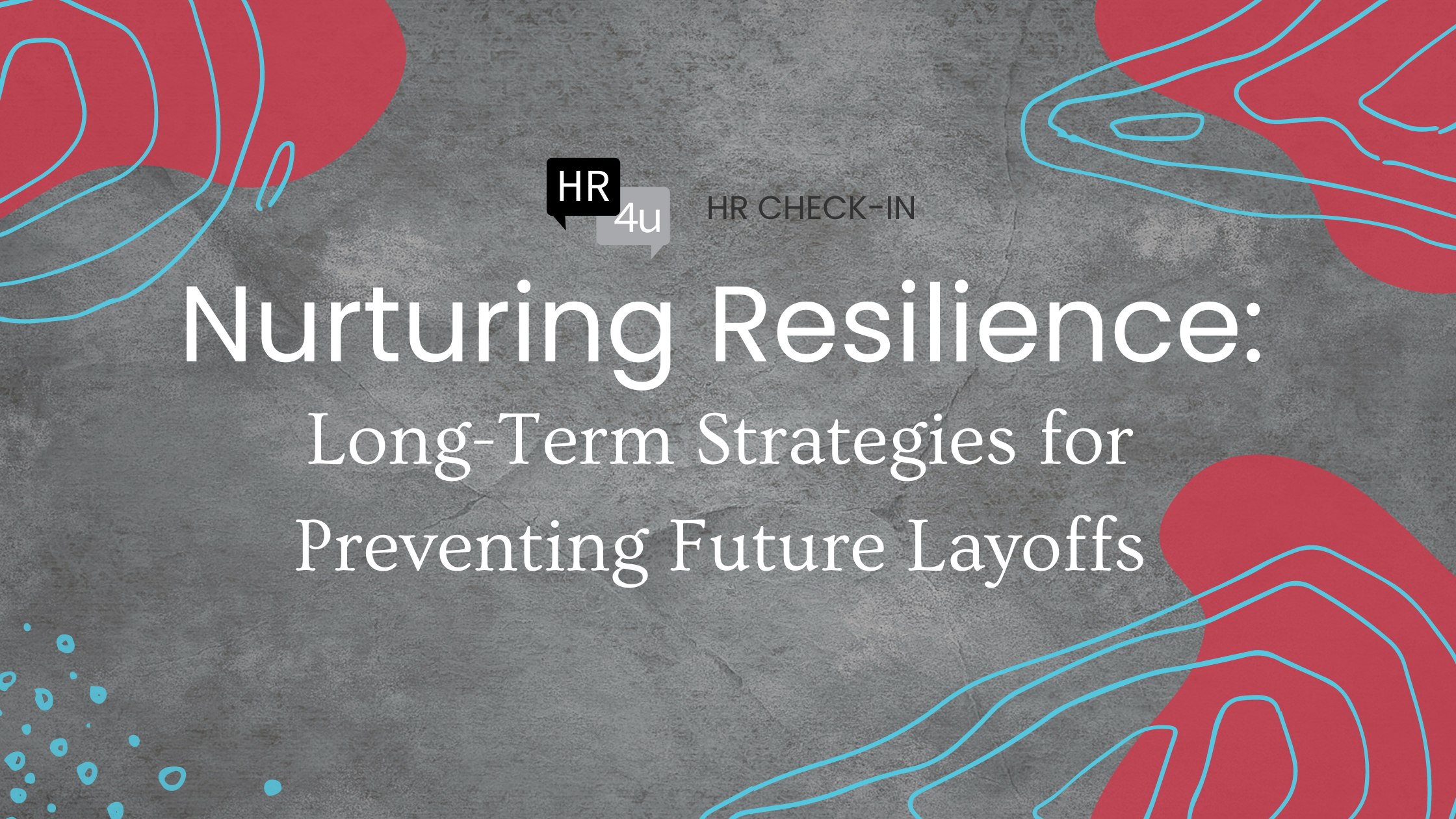Long-Term Strategies for Preventing Future Layoffs
In the wake of difficult decisions like layoffs, HR often finds themselves navigating a delicate balance between supporting the remaining workforce and preparing the organization for the future. While immediate measures are essential for maintaining stability, it’s equally crucial to implement long-term strategies aimed at preventing future layoffs and fostering a culture of resilience within the company. A few editions ago, we looked at “The Path Forward: Supporting Employees After a Layoff;” Today, let’s build on that topic and delve into some enduring strategies for HR and employers to consider.
Diversification for Stability:
Embracing diversity and inclusion isn’t just a moral imperative; it’s also a strategic advantage in safeguarding against future layoffs. HR can spearhead initiatives to diversify the company’s workforce, not only in terms of race, gender, and ethnicity but also in skills, backgrounds, and perspectives. By building teams with a diverse range of experiences and expertise, companies can better adapt to changing market demands and withstand economic downturns. Additionally, a diverse workforce fosters innovation, creativity, and resilience, as employees bring unique insights and approaches to problem-solving. Investing in diversity and inclusion initiatives isn’t just about compliance; it’s about future-proofing the organization and creating a workplace where every employee feels valued, empowered, and able to contribute their best.
Diversifying revenue streams, client bases, and product/service offerings can fortify the organization against sudden downturns in specific sectors or markets. HR can collaborate with leadership to identify areas for diversification and encourage cross-training among employees to ensure versatility within teams. By embracing diversity in all its forms, including revenue streams and skill sets, companies can mitigate the risk of future layoffs by spreading it across various sectors.
Continuous Skills Training:
In today’s rapidly evolving landscape, the importance of upskilling and reskilling cannot be overstated. HR can take proactive steps to identify emerging skill gaps within the workforce and invest in continuous training programs to address them. By fostering a culture of lifelong learning, companies not only empower employees to stay relevant but also position themselves for growth and adaptability in the face of changing market dynamics.
Lean Workforce Optimization:
While lean workforce strategies are often associated with cost-cutting measures, they can also serve as a proactive approach to preventing layoffs. By optimizing workflows, streamlining processes, and leveraging technology, companies can maximize efficiency without sacrificing employee well-being. HR can lead initiatives focused on lean workforce optimization, ensuring that productivity gains are balanced with employee workload and satisfaction.
Succession Planning and Talent Development:
A robust succession planning framework ensures that key positions within the organization are filled seamlessly, reducing the risk of disruptions during times of transition. HR can work closely with department heads to identify high-potential employees and create tailored development plans to groom them for future leadership roles. By nurturing internal talent pipelines, companies not only safeguard against talent shortages but also foster a culture of growth and advancement.
Adaptive Leadership and Decision-Making:
Effective leadership is paramount in navigating uncertain times and steering the organization toward long-term success. HR can support leadership development initiatives focused on adaptive leadership skills, such as resilience, empathy, and strategic agility. By equipping leaders with the tools and mindset to embrace change proactively, companies can navigate challenges with confidence and inspire trust among employees.
Employee Well-being and Engagement:
A strong emphasis on employee well-being and engagement is essential for maintaining a resilient workforce. HR can implement initiatives aimed at promoting work-life balance, mental health support, and employee recognition to foster a positive workplace culture. By prioritizing the holistic well-being of employees, companies not only enhance retention and productivity but also cultivate a sense of loyalty and commitment among the workforce.
As employers, it’s imperative to adopt a forward-thinking approach that prioritizes resilience, adaptability, and continuous improvement. By implementing long-term strategies focused on diversification, continuous skills training, lean workforce optimization, succession planning, adaptive leadership, and employee well-being, companies can proactively prevent future layoffs and position themselves for sustained success in an ever-changing business landscape. Together, let’s nurture resilience and build a future where layoffs are the exception rather than the norm.


